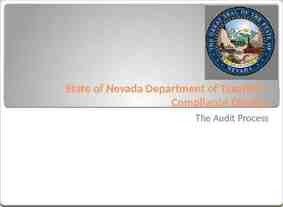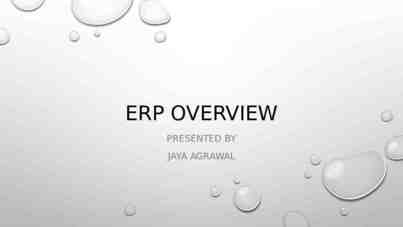PK-12 Data Governance A District Perspective Thomas Purwin,
18 Slides724.00 KB

PK-12 Data Governance A District Perspective Thomas Purwin, Jersey City Public Schools

The goal of Data Governance is to set up rules and standards for managing data in order to ensure that applications responsible for reporting and analysis access the most complete, accurate, and up-to-date data available.

Basic Elements of a Data Governance Program Creating a data governance team. Developing a business plan and business case for executive buy-in. Building a governance project and program charter. Designing a governance plan.

Assemble the Team Data owners Business subject matter experts (SME) Business process owners Data stewards

“Building and deploying a longitudinal data system is an agency-wide endeavor that should involve stakeholders throughout the education system. States (Districts) must implement a comprehensive data governance strategy to ensure that the appropriate people and processes are aligned around data ownership, accountability, quality, access, and security.” [Data Quality Campaign]

Governance Structure

Elements in a Standard Business Plan 1. The purpose of the governance project business plan 2. Project organization structure 3. Stakeholders 4. Governance process Outlines the scope, goals, and strategy for the data governance program. Identifies core individuals with decision making authority over governance initiatives and acting members of the steering committee. Identifies individuals who will be affected by the governance project and have a vested interest in its results. Identifies the steps (procedures) that will be taken when carrying out the project.

Elements in a Standard Business Plan (Cont’d) 5. Metrics for measuring program success Identifies objective measures of issues associated with poor master data. Baseline measurements will be taken and progress will be scored against them. This is more important for the governance program. 6. Organizational background Provides a brief explanation of the organizational background to MDM while highlighting the need for data governance. 7. Project purpose Explains the purpose of the project – to improve enterprise master data. 8. Project goals and objectives Identifies how the program aligns with the goals of the organization and identifies an objective end state for the governance process.

Elements in a Standard Business Plan (Cont’d) 9. Milestones These are major deliverables that the program plans to hit at clearly defined dates and check program progress. 10. Project scope The project scope limits the activities of the data governance group identifying areas that will and will not be included in the program scope. 11. Project management approach If the group is following a well defined project management strategy, it should be clearly defined in this section (e.g. PMBOK). This section summarizes the list of projects and priorities broken 12. High-level project down into phases with milestones that mark the end of each work plan phase.

Duties for a District Data Governance Standing Committee Critical research and policy questions Reports and information available Needs requirement/gap analysis to meet legislative expectations Financial data to support new PK-12 funding model/formulas Operating rules and governance structure for PK-12 data management [Status Report OSPI, Quality Education Council]

Develop an Organizational Structure and Charter a) 1. Project purpose b) c) a) 2. Scope definition b) Includes a list and description of the goals the project is expected to achieve and the strategy to be followed. Goals should be prioritized as high (H), medium (M), or low (L). It should also describe, in detail, the critical success factors that will ensure on time, on budget delivery. Identifies tasks that must be performed in order to successfully complete the project and tasks that will not be addressed. Provides a procedure for managing a change in scope.

Develop an Organizational Structure and Charter (Cont’d) a) b) 3. Project parameters c) d) Contains an exhaustive list of project planning boundaries. Identifies the project organizational structure and defines accountability/responsibility. Articulates communication standards (who reports will go to and frequency of updates). Summarizes key deliverables, milestones, and budget – found in the business plan.

Data Governance Group Responsibilities Defining the scope and features of data management with respect to organizational goals and regulatory constraints Defining the organizational structure and roles of the governance framework for the purpose of decision making about data policies and processes Creating a shared business vocabulary (SBV) that is agreed upon by all district departments

Data Governance Group Responsibilities (Cont’d) Deciding how to remedy data quality issues Establishing security rules that define who can see and update the master data (e.g. for privacy legislation, compliance, etc.) Creating policies and procedures that define acceptable and unacceptable uses of data. Delegating responsibilities for the implementation, communication, monitoring, and enforcement of data policies and procedures

Master Data Sets for Multiple Departments in a School District

IES Practice Guide: Using Student Achievement Data to Support Instructional Decision Making

Actions to Ensure Effective Data Use “Implement policies and promote practices, including professional development and credentialing, to ensure that educators know how to access, analyze, and use data appropriately.” [Data Quality Campaign]







